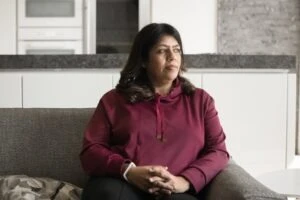
A car accident, medical mistake, or motorcycle accident may leave you with far more than medical bills and other financial losses. You may be suffering a significant difference in your quality of life, struggling to meet your needs, do the things you enjoy, and live a healthy lifestyle, and a North Charleston personal injury lawyer at Shelly Leeke Law Firm can help.
In these situations, you may be able to sue for loss of enjoyment in life in South Carolina if you meet specific requirements first.
Understanding Your Ability to Claim a Loss of Enjoyment
Loss of enjoyment of life is a type of noneconomic damage that you may be eligible to claim if you were hurt by another person under South Carolina personal injury laws. You can sue someone for the loss of enjoyment of life if you can meet specific grounds for doing so first, including having losses that stem from pain, suffering, and similar losses. More so, you must have suffered an injury as a result of the accident.
If you were hurt in a car accident, suffered a traumatic brain injury, and are now facing complications to mental health, cognitive function, and ongoing pain, that may indicate you are struggling with a loss of enjoyment of life. If you were hit in a car accident but did not seek medical care, it will be far more difficult to prove loss of enjoyment of life. The key is to show evidence of what this accident cost you.
With the help of your personal injury attorney, you can gain the insight you need to determine if you can seek out compensation for a claim like this. In most cases, loss of enjoyment of life is often lumped together with other types of pain and suffering claims. Your attorney will help determine if this applies to your situation, and you can learn more by reading our frequently asked questions.

Understanding What Loss of Enjoyment in Life Means
Measuring and valuing loss of enjoyment of life is a challenging situation since every person’s experience is different, and what applies to one does not apply to others. The law does not specifically state what this could include, but with the help of your attorney, you will be given insight and support in navigating these factors. Some examples that could help to measure the loss of enjoyment in life include:
- Activities you can no longer do because of physical limitations.
- Medical expenses that limit your overall financial well-being.
- Intrusions of trauma and emotional distress due to the incident.
- Prescription medication costs, types, and side effects.
- The length of your recovery.
- The severity of your injuries.
- The ongoing consequences or limitations you face as a result of your accident.
- The permanency of your injuries.
Your personal injury attorney in South Carolina will define what types of pain and suffering you may qualify for, but be sure to provide as much information and insight as you can about how this incident impacted your life and well-being. Documenting any losses and impact you have, such as in a journal, can also help to prove the value of your claim, so review our results to see how we have helped others in your situation.
Other Ways to Prove Loss of Enjoyment in Life
In a personal injury claim, the burden of proving your losses lies on your shoulders and with your attorney. The more accurate and comprehensive you can accurately describe your losses and place a value on them, the harder it is for the insurance company to refute those claims. Some of the ways your personal injury attorney may do that include the following:
- Gather testimonials from your doctor. Your doctor’s information on your limitations and the impact this incident has had on your health and well-being can greatly enhance your claim.
- Data from your therapist. If your emotional trauma can be estimated, such as through documented onset of mental health disorders since your incident, that may help to prove your losses.
- Witness statements. Witnesses such as your family, friends, and coworkers can provide insight into the complications and limitations you are facing due to the accident.
- Medical records. In many situations, your medical records will clearly demonstrate what your losses are and may help to show the loss of ability to engage in various activities.
Documenting your losses is critical to proving the value of your claim. Take the time to meet with your South Carolina personal injury attorney to carefully review the details of your case so that you can better understand your losses. Follow your attorney’s insights into the steps you can take to minimize the risk of reduced claims.

The Difference Between Loss of Enjoyment of Life and Emotional Trauma
The South Carolina Noneconomic Damage Awards Act of 2005 does not outright define what loss of enjoyment of life is nor what emotional distress must include, and it is easy to see how both could be considered similar. It is not uncommon for your attorney to include both components in your claim for coverage. There is a difference in them, and that difference could prove to be vital for you to understand.
Loss of enjoyment of life refers to the way you engage with your life, including activities that you have always done. This includes the way the accident is impacting your everyday life, such as your ability to participate in the community, engage in activities you love, or walk and care for yourself. It measures the impact the accident is having directly on your life and habits.
Emotional distress refers to the emotional and psychological trauma you are now facing as a result of the accident. This often means you are seeking mental health support through counseling or taking medications to support your mental health. Post-traumatic stress disorder is a very common outcome of such accidents.

Seek Out a Free Consultation to Discuss Your Injuries and Losses
At the Shelly Leeke Law Firm, you always have an advocate by your side, ready to fight for you. Take the time now to learn what your rights are to file a claim for loss of enjoyment of life by meeting with your attorney to discuss your case. Request a free consultation with a South Carolina personal injury lawyer now.







